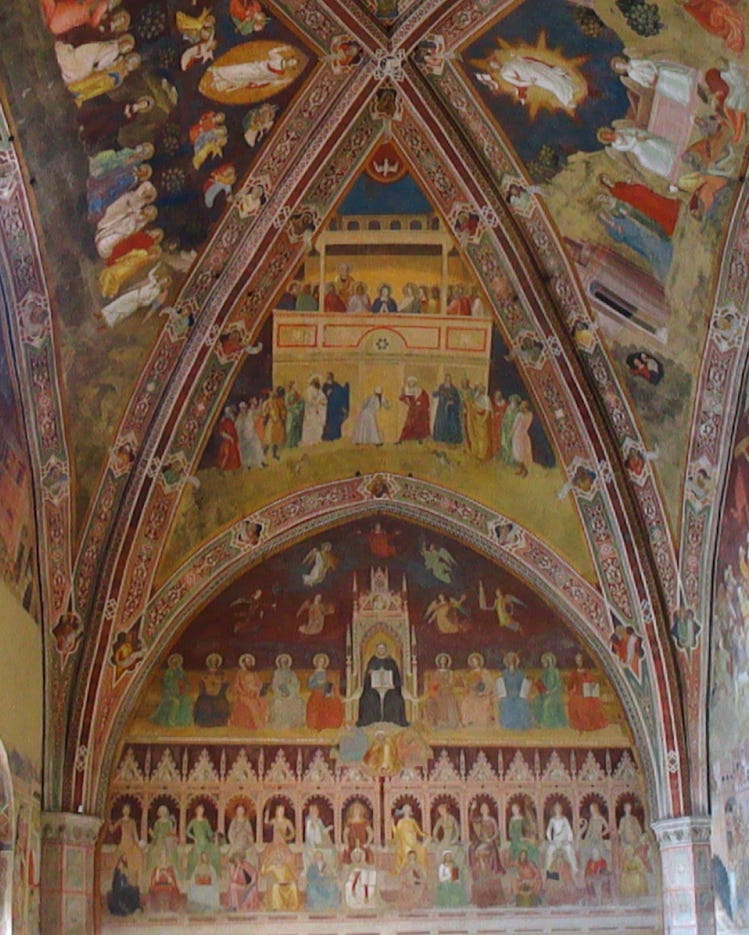In this episode we talk about the liberal arts - what they are, and why those of us with school age children aren't quite there yet.
Books
The Liberal Arts Tradition by Kevin Clark and Ravi Jain
Parents and Children by Charlotte Mason
Ourselves by Charlotte Mason
The Great Tradition by Richard Gamble
Quotes
“The Florentine mind of the Middle Ages… believed, not only that the seven Liberal Arts were fully under the direct outpouring of the Holy Ghost, but that every fruitful idea, every original conception, whether in Euclid, or grammar, or music, was a direct inspiration from the Holy Spirit, without any thought at all as to whether the person so inspired named himself by the name of God, or recognised whence his inspiration came.” (Charlotte Mason, Parents and Children)
“One of the ancient patterns of education was that imitation precedes art. An art could only be attained from an extensive foundation in action and imitations forming cultivated habits… an art could only be attained when imitation was joined with reason.” (Kevin Clark and Ravi Jain, The Liberal Arts Tradition)
“There was a special teacher for each of the three stages- primary, secondary and higher- of literary education: after the primary-school teacher- ‘grammatist’- came the ‘grammarian’- who in his turn was succeeded by the ‘rhetor.’’ (H. I. Marrou, Education in Antiquity)
“Intellect is formed in schools only in a preliminary way and indirectly. Rational animals abstract universals from particulars at all ages, but boys can’t handle strings of them without the concrete things in hands. Argument for them is common sense: what goes up must come down. What lives dies. The liberal arts and sciences overload their brains, short-circuit knowledge of particulars and turn out smart brats who argue about everything in a vacuum. If you say let x be a horse, the budding sophist thinks x is a horse. The ‘Great Book’ teachers of the last generation admitted children to college at twelve who became ‘quiz kids’ on radio and television shows, ending up not only fools but misfits and suicides. Childhood has rights and needs. Forcing college courses down to schools is presumptive arrogance, an enemy of children and of science itself.” (John Senior, Idea of a School)
“(Aquinas) stands at the beginning of the medieval tradition that taught the liberal arts as preparatory for the studies of philosophy and theology. Thomas Aquinas describes them as the tools by which knowledge is fashioned.” (Kevin Clark and Ravi Jain, The Liberal Arts Tradition)
“What is the soil in which knowledge grows? A humble heart that is willing to receive, and a disposition to love God in and through His world.” (Kalos Classical’s Catechism)
“What is wisdom? The fear of the Lord is the beginning of wisdom, and the supreme wisdom is the knowledge of God. The rest of wisdom is to know my own ignorance, and to be an eager student of God’s Word and God’s world.” (Kalos Classical’s Catechism)
“Students, what are you? I am an embodied soul, made in God’s image. I am endowed with reason and suited to communion with God, man, and creation.” (Kalos Classical’s Catechism)
“There was a special teacher for each of the three stages- primary, secondary and higher- of literary education: after the primary-school teacher- ‘grammatist’- came the ‘grammarian’- who in his turn was succeeded by the ‘rhetor.’’ (H. I. Marrou, Education in Antiquity)
“Trying to abstract the skill of each liberal art from its accompanying content and form is to deface it. We believe each art is an irreducible well-worn path (vium) that will allow students not only to acquire the skill and content, but to be initiated into the Western tradition. Because the liberal arts require an imitative foundation, they can only come after the establishment of piety and the musical and gymnastic training.” (Kevin Clark and Ravi Jain, The Liberal Arts Tradition)
“You see why ‘liberal studies’ are so called; it is because they are studies worthy of a free-born gentleman. But there is only one really liberal study,—that which gives a man his liberty. It is the study of wisdom, and that is lofty, brave, and great-souled. All other studies are puny and puerile.” (Seneca, “On Liberal and Vocational Studies”)
Resources





